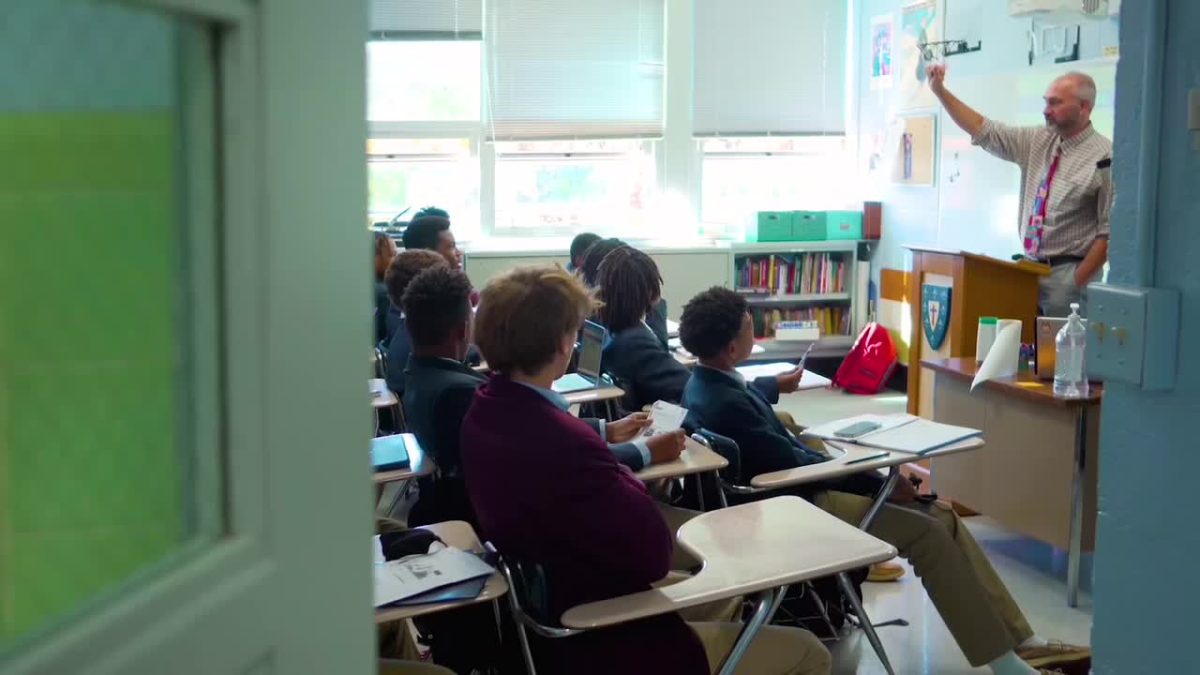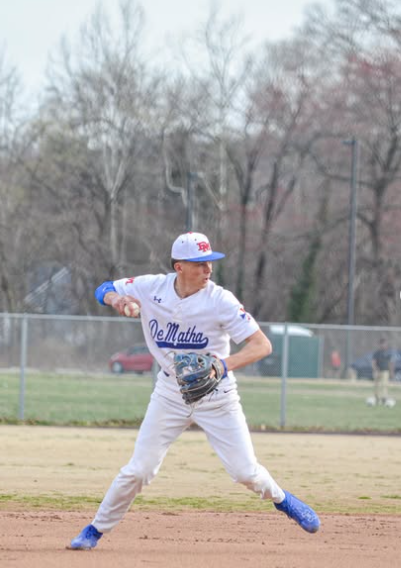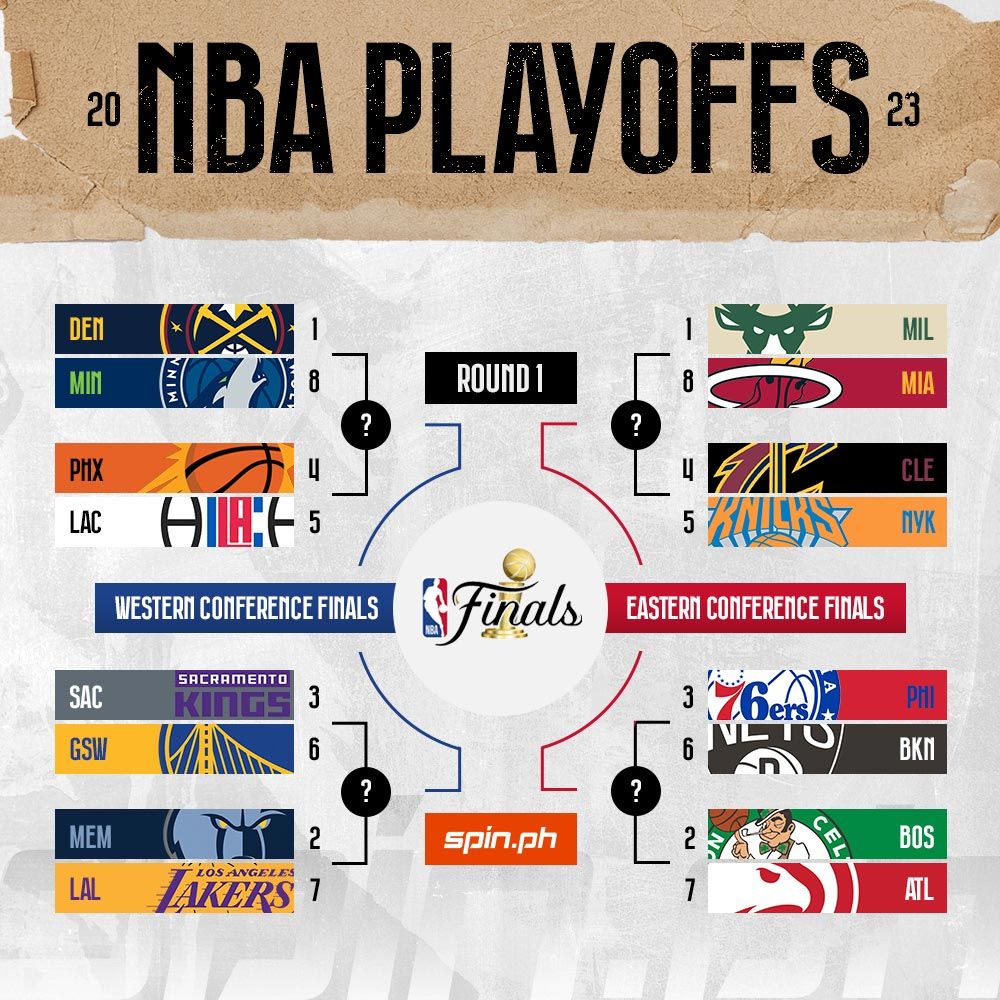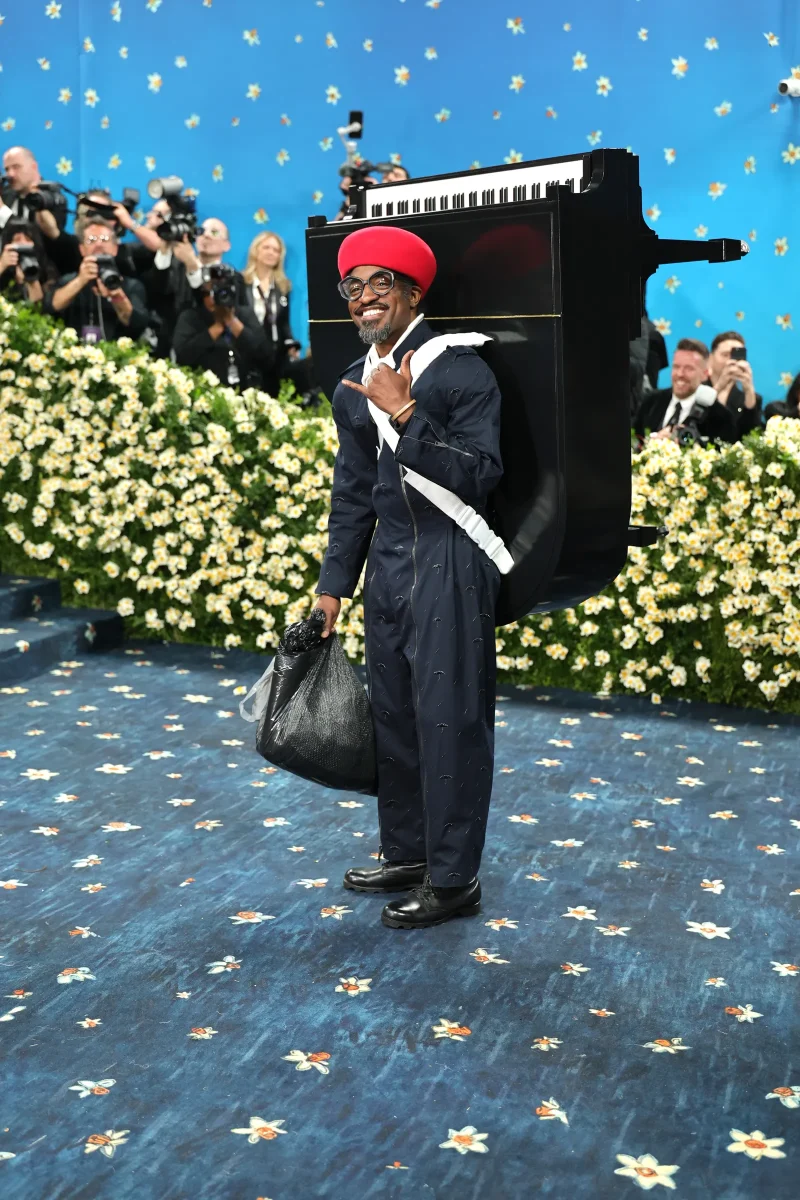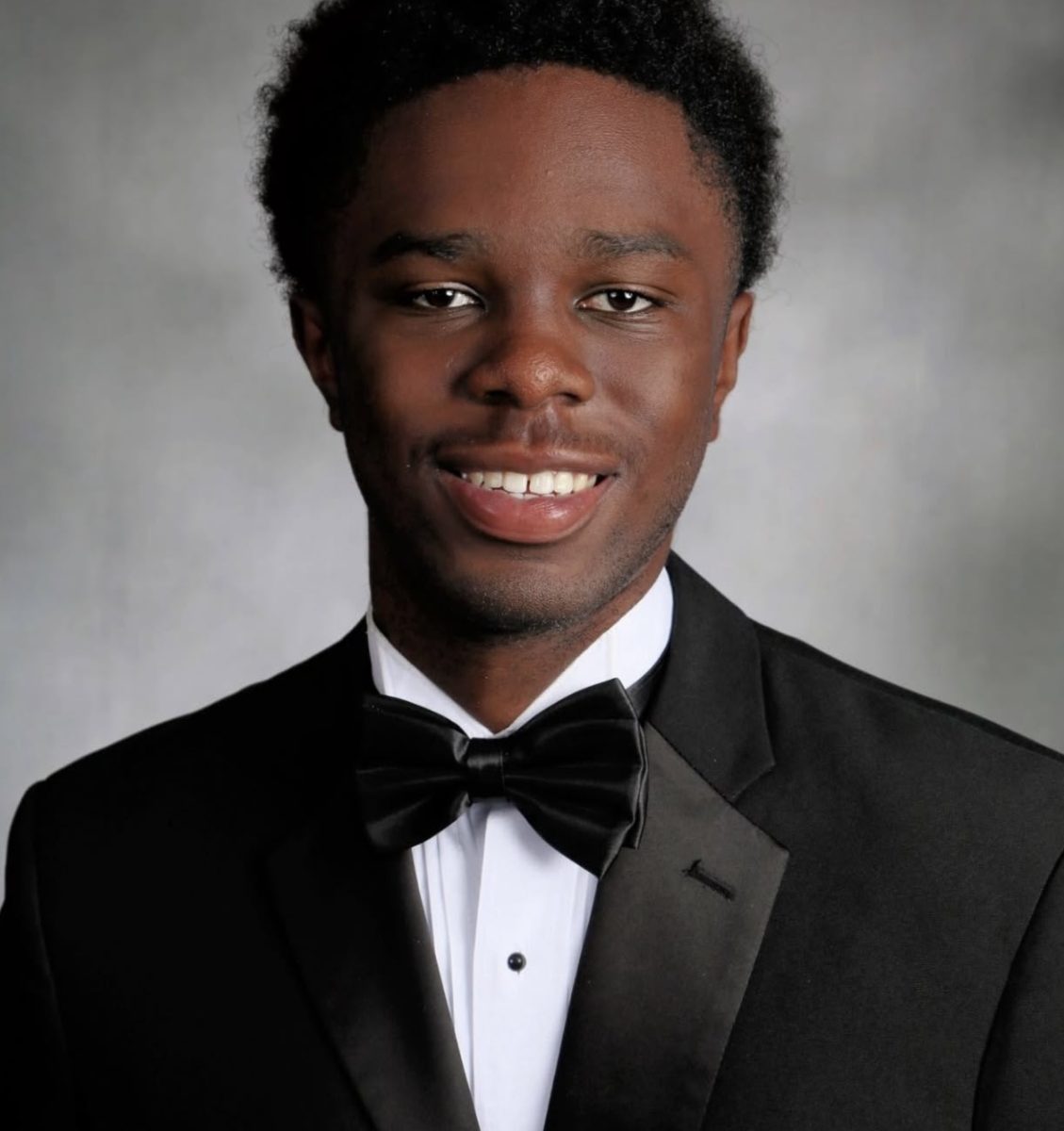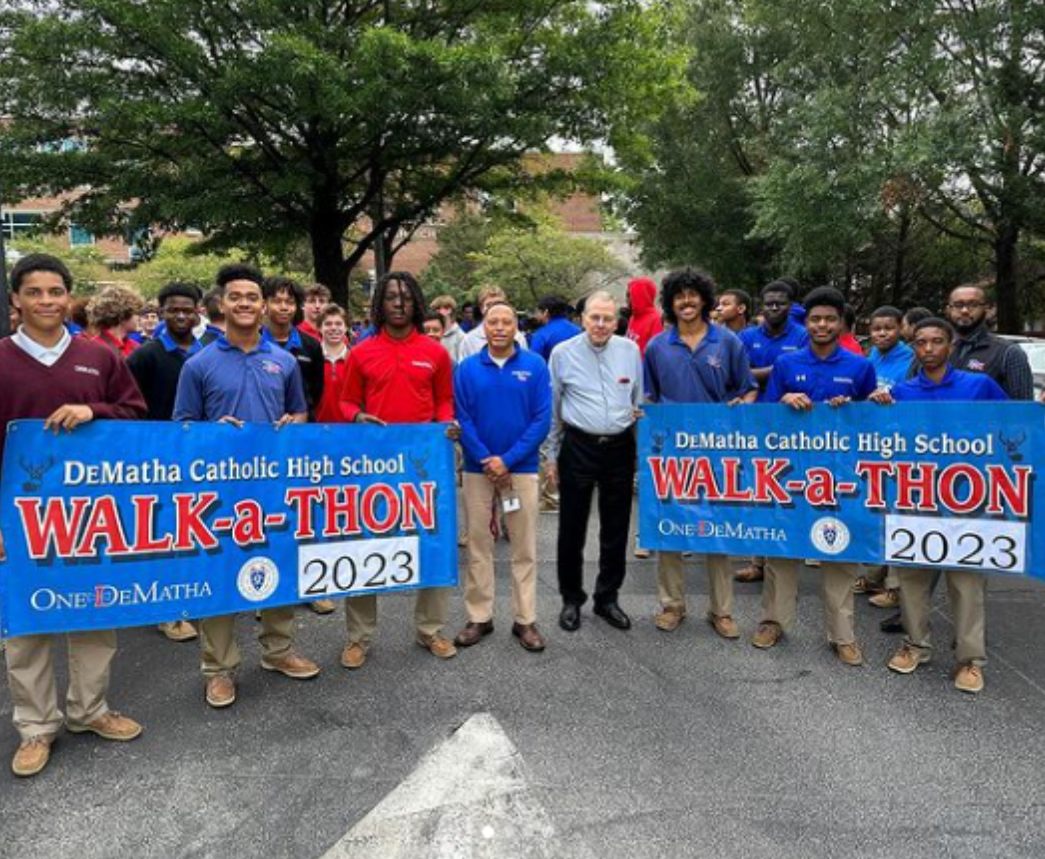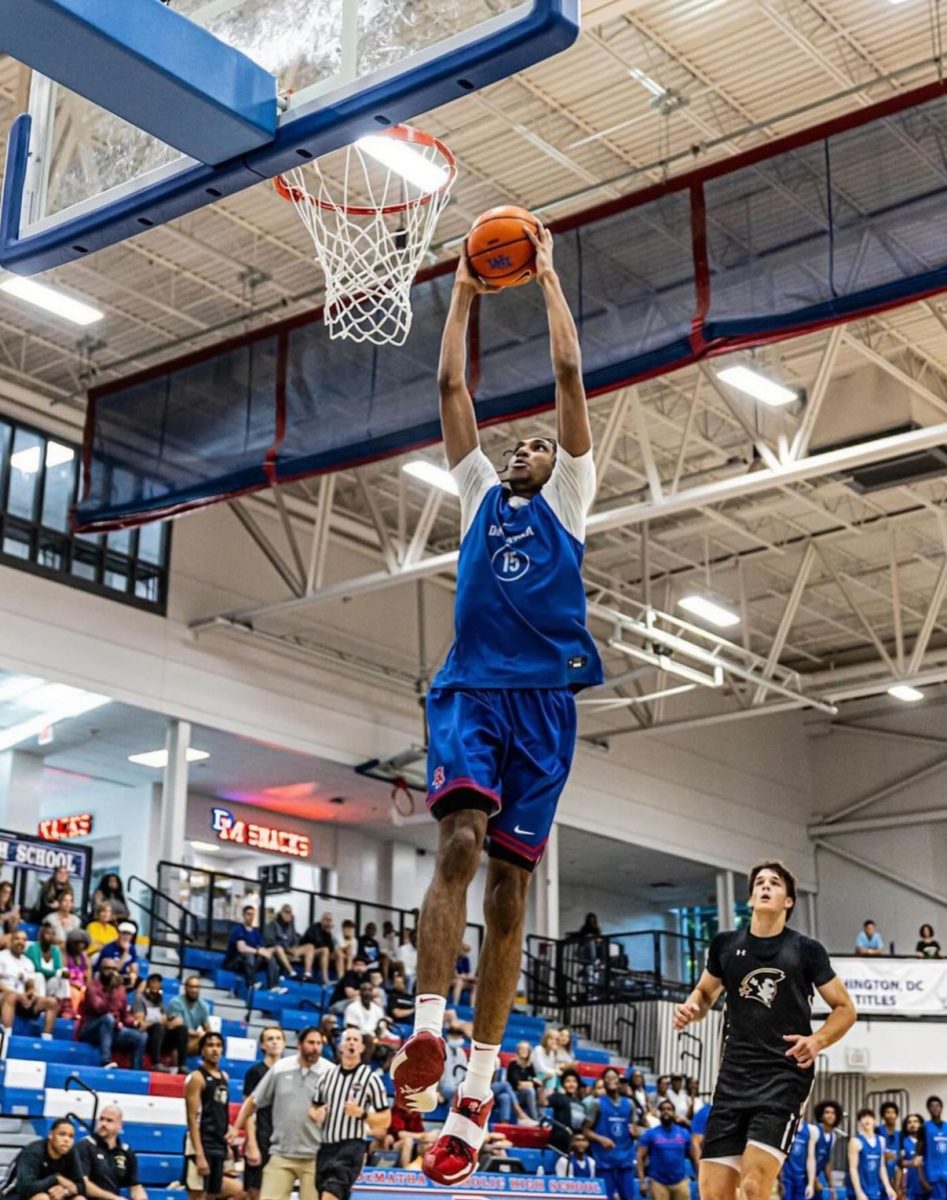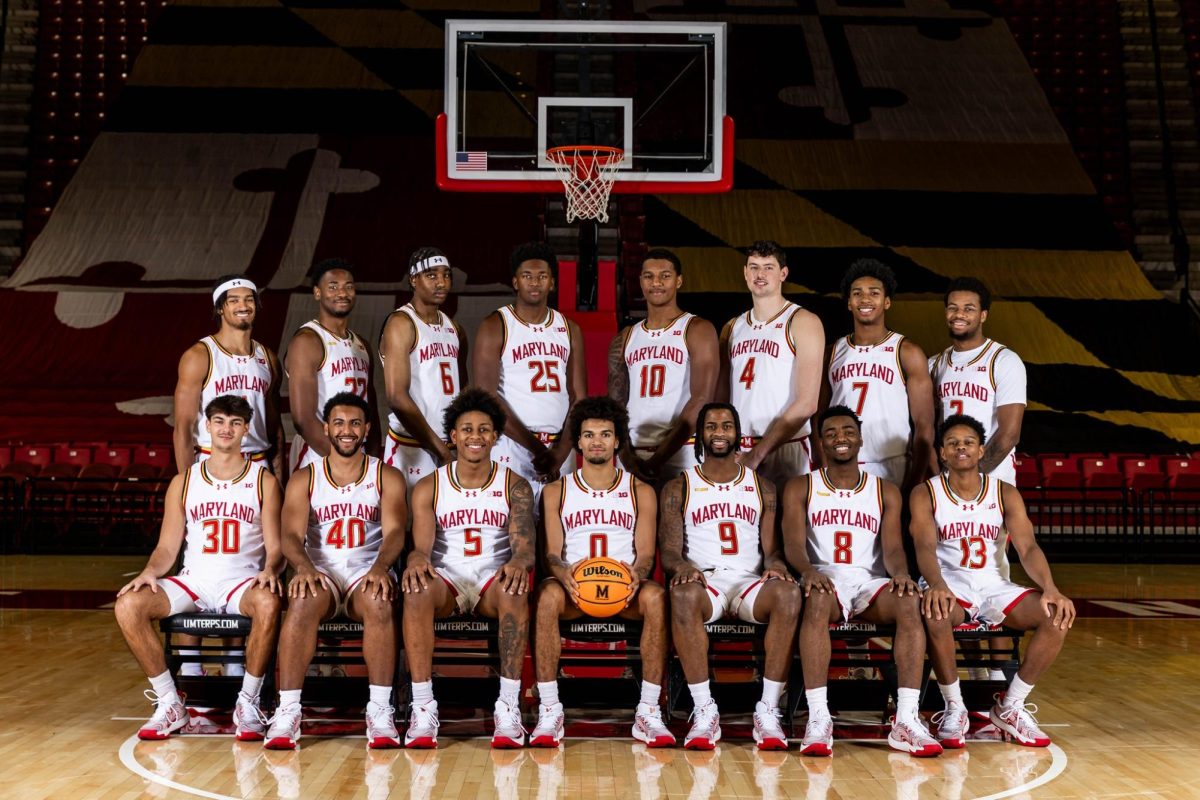Senioritis: Do students believe it’s real?

April 13, 2022
Now that the school year is slowly coming to an end at DeMatha Catholic High School, many of the students, especially the seniors, might come down with a case of “senioritis.” The term senioritis refers to senior students not trying as hard or slacking off on assignments, homework, tests, and quizzes as the school year ends, or if they have already committed to a college to attend in the fall. But what do some of the seniors really think about senioritis?
Senior SGA Secretary Joe Morley has committed to Clemson University where he will be studying engineering. Joe does believe in senioritis, saying, “I think it is very easy to let that end feeling get to you and feel like once you get into college, nothing else in high school matters.” He also admits that it is a “tempting feeling to not complete work when I get busy or to doze off in class, but so far I have not been hit with senioritis.”
In regards to trying to avoid senioritis, Joe believes that there is no real way to dodge it, but students need to have the “determination to finish strong and feel successful when leaving DeMatha.”
Senior SGA President Therman Hawkins III has committed to the University of Maryland, College Park, where he will study business administration with a marketing focus. Therman believes in the idea of senioritis, saying, “Once the college acceptance letters start rolling in, you get so excited for the next phase of your life, that everyday high school can get tiring.” He also believes that all students might slack off, because, “as summer gets closer and closer, we tend to forget we have homework assignments due the next day.”
Therman does admit to dealing with senioritis “just a little,” but he “still wants to finish the year strong in terms of my academics, and especially in terms of being SGA President.” He believes that combating senioritis is “all in the mindset,” adding that “you are what you think” and constantly saying to yourself, “I need to finish off the year strong. I know I can do this.”
Senior crew member Ben Tarnosky has committed to Towson University, where he will be studying history in hopes of becoming a high school teacher one day. Ben also believes in the idea of senioritis, saying that “most of the seniors have their applications in by December and from that point on, it feels like your motivation is totally gone.” He also believes that the senior class slacks off towards the end of the year “because no one has motivation and it’s just a fight to get to the end of the year.”
Ben has been hit with senioritis and rowing for the crew team has him coming home tired at the end of the day. “I find myself getting home from practice and having no energy to do any schoolwork in a way that I’ve never experienced before,” he says. Ben finds it ironic that he wants to be a high school teacher in the future, because one day he might tell his students to “not to slack off in the second semester of their senior year, even though I know I did.” Ben believes that the best way to combat senioritis is to “just push through, give yourself time to stay away from your phone or video games, and just focus on schoolwork.”
Senior baseball player Amir Makle will be studying political science at either Morehouse, Howard, or Hampton. Amir believes in the idea of senioritis, saying that it “starts when students start getting acceptance letters and have an idea on where they are going to college.” He also believes that senioritis really goes into effect after the first semester ends. Amir admits to being hit with senioritis, but he “had to remind myself that I had to finish strong and still put in the same effort even though the stakes are lower.” To avoid and combat senioritis, Amir thinks that “you need to stay mentally strong and keep pushing yourself.”
Mr. Bright, the senior counselor, half-joked that the symptoms of senioritis include “mild to moderate cases of staring out the window, homework fatigue, inflammation of the whining gland, acute mediocrity, short-term memory loss, excessive tardiness, and excessive hallway wandering.”
The tongue-in-cheek comments aside, Mr. Bright understands that the seniors are almost done, saying, “with less than a month to go, seniors can start to see the finish line at this point.” He adds that “seniors have worked getting college applications completed, finalizing scholarship applications, working on projects for classes, as well as making sure they set a positive example for the underclassmen,” as the seniors are both “excited and nervous to graduate and move on into the next step in their journey.”
Mr. Bright always cautions students to “not slack off in the final weeks as it can have a negative impact on graduation as well as college decisions and financial aid offers.” He points out that colleges “reserve the right to rescind college acceptances as well as lower or take away financial aid if a student doesn’t finish with the same GPA as they had when they applied.” Mr. Bright says he has personally seen financial aid offers change, adding, “I have heard from colleagues at other schools when a college took away a college acceptance.”
In order to combat and avoid senioritis, “seniors can stay focused by continuing to do what has made them successful in the past,” says Mr. Bright. He adds, “Sometimes seniors might need to set daily or weekly goals this time of year in order to stay focused or to refocus.”
Mr. Bright stressed that “whatever goal a student develops needs to be tangible.” Perhaps more importantly, “Once that student reaches his goal, he needs to make sure to celebrate reaching that goal [because] celebrating and acknowledging this accomplishment is key to this process.”
The next step is to stay organized. Mr. Bright understands that “there are a ton of events in the last few weeks and there are a lot of details with each of those events.” One helpful tool he recommends seniors use is the calendar function on their phones or setting reminders to make to-do lists.
The last tip is to “remember what you are working towards.” He wants the seniors to “hang up that acceptance letter or college banner or job offer on your mirror, in your room, and in the kitchen, and at your desk, so that you remember what you are working towards.”
Mr. Bright wants us to “be proud of yourself and what you have accomplished and use that motivation to carry yourself to graduation!”

